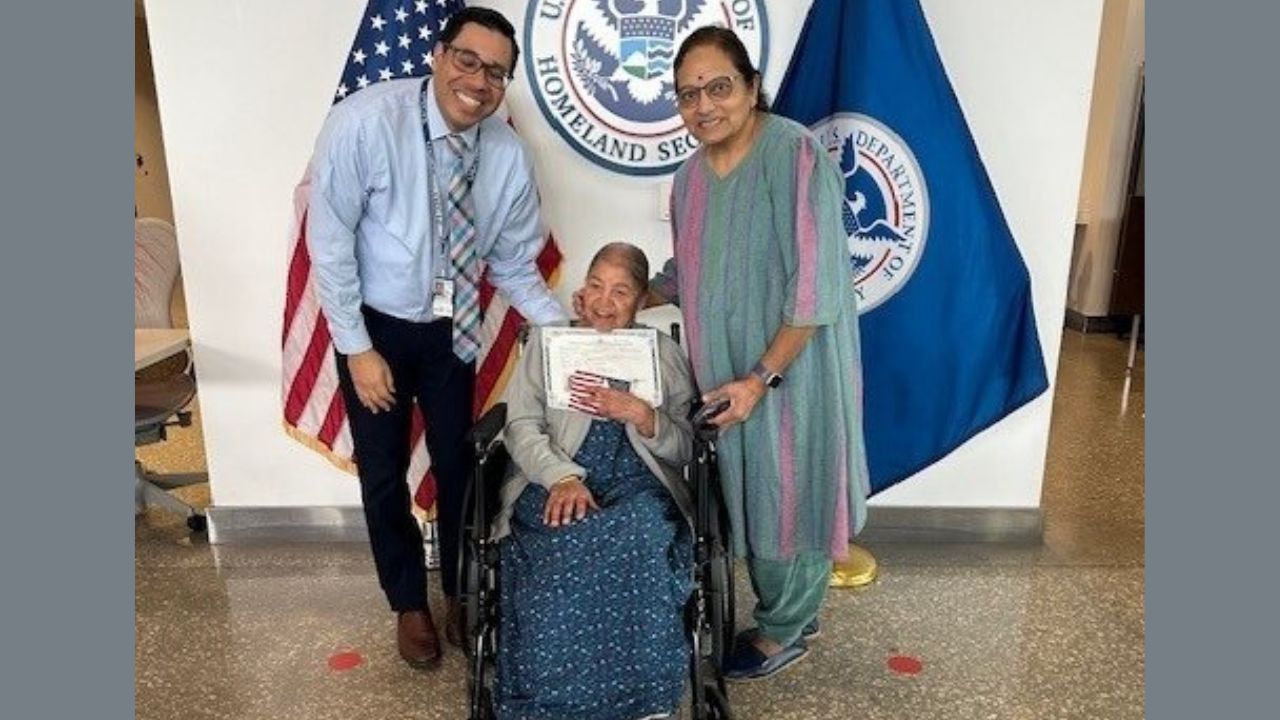A touching moment occurred when a 99-year-old woman of Indian descent became an official citizen of the United States, signifying hope and perseverance in the face of immigration obstacles. The accomplishment was announced by the US Citizenship and Immigration Services (USCIS), where Daibai took the Oath of Allegiance in their Orlando office with her daughter and the USCIS officer administering the oath.
It has been said that age is just a number. This animated 99-year-old who recently became a #NewUSCitizen in our Orlando office seems to confirm that. Daibai was eager to take the Oath of Allegiance because she is from India. Our officer, who swore her in, is pictured with her daughter. Congratulations, Daibai,” the USCIS wrote on X.
The USCIS celebrated Daibai’s spirit and tenacity by posting about her inspirational journey to citizenship on social media, which attracted a lot of attention. Her narrative also draws attention to the structural problems and hold-ups in the immigration system, which have prompted calls for reform and increased effectiveness.
(Join our ETNRI WhatsApp channel for all the latest updates.)
Daibai’s achievement should be celebrated, but it has also raised awareness of the difficulties encountered by many immigrants applying for permanent residency in the US. Long wait times and red tape have been criticised as common features of the immigration process, especially for those with employment-based visas such as the H1B.
Only a small portion of green card applicants are anticipated to obtain permanent status in the current fiscal year, according to statistics that paint a stark picture of the situation. Unprecedented backlogs in application processing have left millions of people waiting for decisions regarding their immigration status.
The Green Card Lottery, a popular avenue for aspiring immigrants, presents its own set of challenges, with a stagnant cap and dwindling odds of success. Family-sponsored immigration categories also face complexities and delays, with many applicants confronting lifetime waits for specific country-category combinations.
The obstacles are no less severe when it comes to employment-based green cards, where there is a mounting backlog and a restricted supply of visas. Particularly among Indians, wait times for green cards are excruciating; some may have to wait over a century.
Long-term delays affect people personally and also give rise to more general concerns about the effectiveness and fairness of the US immigration system. The need for more equitable and efficient procedures for immigrants looking to start over in the United States has been emphasised by the increasing calls for comprehensive reforms to address these problems. As demonstrated by Daibai’s story, gaining citizenship is frequently accompanied by resiliency, tenacity, and optimism for the future.


